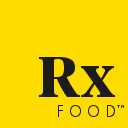Foods High in Protein
Protein is important for muscle development along with supporting growth, hormone production and immune system function. The exact amount of protein needed per day will vary on your age, activity level, any medical conditions and more. At the lowest, 0.8mg of protein per kg of body weight is recommended, but in many cases you may need more. It is also important to note that the body can only absorb about 20 grams of protein at a time so spreading out protein 3-4 times a day is typically more effective. Please work with your clinician to find the best balance for you.
Foods High in Protein
| Food | Amino Acids | Protein Content (per serving) |
|---|---|---|
| Chicken Breast | Complete (all essential amino acids) | ~26 g (3 oz cooked) |
| Turkey Breast | Complete (all essential amino acids) | ~24 g (3 oz cooked) |
| Lean Beef | Complete (all essential amino acids) | ~21 g (3 oz cooked) |
| Salmon | Complete (all essential amino acids) | ~21 g (3 oz cooked) |
| Cottage Cheese | Complete (all essential amino acids) | ~14 g (1/2 cup) |
| Chickpeas | Incomplete (some essential amino acids) | ~15 g (1/2 cup cooked) |
| Greek Yogurt | Incomplete (some essential amino acids) | ~10-20 g (6 oz or 3/4 cup) |
| Tofu | Complete (all essential amino acids) | ~10 g (4 oz) |
| Lentils | Incomplete (some essential amino acids) | ~9 g (1/2 cup cooked) |
| Quinoa | Complete (all essential amino acids) | ~8 g (1/2 cup cooked) |
| Peanut Butter | Incomplete (some essential amino acids) | ~8 g (2 tbsp) |
| Black Beans | Incomplete (some essential amino acids) | ~8 g (1/2 cup cooked) |
| Eggs | Complete (all essential amino acids) | ~6 g (1 large egg) |
| Almonds | Incomplete (some essential amino acids) | ~6 g (1 oz) |
Note there are 20 standard amino acids that are used to build proteins. Out of these, 9 are considered essential amino acids because the human body cannot synthesize them on its own and must be obtained from diet. The remaining 11 amino acids are considered non-essential because the body can synthesize them from other amino acids or metabolic pathways. There are also some amino acids that are considered “conditionally essential” meaning that at certain times (e.g. during significant growth, pregnancy, or major trauma/injury). It is best to target complete proteins or a variety of incomplete proteins to meet your needs.
Amino Acid Categories
| Amino Acid Category | Number of Amino Acids | Amino Acids |
|---|---|---|
| Essential Amino Acids | 9 | Histidine, Isoleucine, Leucine, Lysine, Methionine, Phenylalanine, Threonine, Tryptophan, Valine |
| Conditionally Essential Amino Acids | - | Arginine, Cysteine, Glutamine, Tyrosine |
| Non-Essential Amino Acids | 11 | Alanine, Asparagine, Aspartic Acid, Glutamic Acid, Glycine, Proline, Serine |
Essential Amino Acids and Food Sources
| Essential Amino Acid | Good Food Sources |
|---|---|
| Isoleucine | Chicken, turkey, eggs, fish, lentils, soy products, quinoa, pumpkin seeds, hemp seeds |
| Leucine | Beef, chicken, turkey, fish, eggs, dairy products, soy products, beans, lentils, nuts, seeds, spirulina |
| Lysine | Meat (especially red meat), poultry, fish, dairy products, eggs, soy products, legumes (beans, lentils), quinoa |
| Methionine | Eggs, fish, poultry, lean meats, dairy products, nuts, seeds, whole grains, spirulina |
| Phenylalanine | Lean meats, poultry, fish, dairy products, eggs, beans, lentils, soy products, nuts, seeds |
| Threonine | Meat, poultry, fish, dairy products, eggs, beans, lentils, nuts, seeds, spirulina |
| Tryptophan | Turkey, chicken, dairy products, eggs, nuts, seeds, soy products, whole grains, spirulina |
| Valine | Meat, poultry, fish, dairy products, beans, lentils, soy products, nuts, seeds, spirulina, hemp seeds |
Some Recipe Ideas
Grilled Chicken and Quinoa Salad:
Grill or bake chicken breast and serve over a bed of cooked quinoa.
Add chopped cucumbers, tomatoes, red onion, and feta cheese.
Drizzle with a lemon-olive oil dressing.
Estimated Protein Content: Chicken Breast (26 g per 3 ounces), Quinoa (4 g per 1/2 cup)
Black Bean and Veggie Wrap:
Mash black beans and mix with diced bell peppers, onions, and spices.
Spread the mixture on a whole wheat wrap and top with lettuce and salsa.
Estimated Protein Content: Black Beans (15 g per cup), Whole Wheat Wrap (varies)
Greek Yogurt Parfait:
Layer Greek yogurt with mixed berries, granola, and a drizzle of honey.
Estimated Protein Content: Greek Yogurt (10 g per 6 ounces), Granola (varies)
Salmon and Asparagus Sheet Pan Dinner:
Place salmon fillets and asparagus on a baking sheet.
Drizzle with olive oil and sprinkle with herbs.
Roast until cooked through.
Estimated Protein Content: Salmon (21 g per 3 ounces), Asparagus (2 g per 1/2 cup)
Egg and Vegetable Scramble:
Scramble eggs with sautéed vegetables like spinach, bell peppers, and mushrooms.
Serve with whole grain toast.
Estimated Protein Content: Eggs (6 g per large egg), Vegetables (varies)
Tofu and Vegetable Stir-Fry:
Sauté cubed tofu with a mix of colorful vegetables in a stir-fry sauce.
Serve over brown rice or quinoa.
Estimated Protein Content: Tofu (10 g per 4 ounces), Vegetables (varies)
Cottage Cheese and Fruit Bowl:
Mix cottage cheese with diced fresh fruits like pineapple, peaches, and berries.
Sprinkle with chopped nuts for added crunch.
Estimated Protein Content: Cottage Cheese (14 g per 1/2 cup), Fruits and Nuts (varies)

